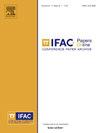Mitigation Strategy for Navigation Errors in Strict Route Plans
Q3 Engineering
引用次数: 0
Abstract
Localization errors can be caused by unintentional malfunctions or intentional attacks on localization processes and sensory devices. These errors can occur at critical driving situations and at high speeds, resulting in false navigation for Autonomous Vehicles (AV). Those situations can be at a road fork that is branching to an adjacent parallel road or to a different level of a multi-level road. The AV can merge to the wrong road and continue following the original route plan until the correct current location is realized. This can lead to hazardous driving situations or deviations from a strict plan. This work considers special cases where the AV must adhere to a strictly specified route, i.e. large vehicles that must be driven on highways. An algorithm that we call Road-Class Aware Rerouting (RCAR) is developed to identify the point of deviation within a directed graph representing a road map and find the optimal way to return to the original route or reach the destination while maintaining road network constraints. Simulated examples are included to illustrate the proposed algorithm.
严格路由规划中导航错误的缓解策略
定位错误可能是由无意的故障或对定位过程和传感设备的故意攻击引起的。这些错误可能发生在关键的驾驶情况和高速行驶中,导致自动驾驶汽车(AV)的错误导航。这些情况可能发生在通往相邻平行道路的岔路口,或者是通往多层次道路的不同级别。自动驾驶汽车可以合并到错误的道路,并继续按照原路线规划,直到实现正确的当前位置。这可能会导致危险的驾驶情况或偏离严格的计划。这项工作考虑了自动驾驶汽车必须遵守严格规定路线的特殊情况,即必须在高速公路上行驶的大型车辆。我们开发了一种称为道路类别感知重路由(RCAR)的算法,用于识别代表路线图的有向图中的偏差点,并在保持路网约束的情况下找到返回原始路线或到达目的地的最佳方式。通过仿真算例说明了所提出的算法。
本文章由计算机程序翻译,如有差异,请以英文原文为准。
求助全文
约1分钟内获得全文
求助全文
来源期刊

IFAC-PapersOnLine
Engineering-Control and Systems Engineering
CiteScore
1.70
自引率
0.00%
发文量
1122
期刊介绍:
All papers from IFAC meetings are published, in partnership with Elsevier, the IFAC Publisher, in theIFAC-PapersOnLine proceedings series hosted at the ScienceDirect web service. This series includes papers previously published in the IFAC website.The main features of the IFAC-PapersOnLine series are: -Online archive including papers from IFAC Symposia, Congresses, Conferences, and most Workshops. -All papers accepted at the meeting are published in PDF format - searchable and citable. -All papers published on the web site can be cited using the IFAC PapersOnLine ISSN and the individual paper DOI (Digital Object Identifier). The site is Open Access in nature - no charge is made to individuals for reading or downloading. Copyright of all papers belongs to IFAC and must be referenced if derivative journal papers are produced from the conference papers. All papers published in IFAC-PapersOnLine have undergone a peer review selection process according to the IFAC rules.
 求助内容:
求助内容: 应助结果提醒方式:
应助结果提醒方式:


